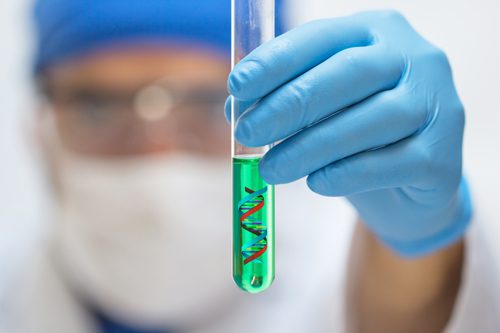What Can Genetic Assay Testing Tell Us about Addiction?
 What is Genetic Assay Testing?
What is Genetic Assay Testing?
“Assay” is a fancy science word that means “test.” This test examines a group of genes that may affect your body’s ability to benefit from certain medications—mainly mental health medications. The test works by looking at a group of genes that are specifically affected by mental health treatments.
What is the purpose of the test?
Anyone who’s ever taken any kind of medicine knows how frustrating and demoralizing it can be to start a new med only to suffer from side effects. Your doctor might change the dosage to try to fix the problem. If that doesn’t work, they might change the medication. If the second medication doesn’t work either, the process repeats over and over. For those with mental illness, the trial and error method can feel especially hopeless. It’s overwhelming, for example, for someone who is suicidal to spend weeks or even months or years figuring out which anti-depressant works for them. Instead of using trial and error, Genetic Assay aims to help doctors make more informed decisions when prescribing medicine.
How does the test work?
It’s a pretty simple process. If a doctor orders the test, all that is needed is a cotton swab of your saliva. Results take three to five days.
Is the test accurate?
Studies have shown that 87% of patients who used Genecept Assay improved. Also, 91% of patients who had previously failed using two medications in the past reported an improvement.
For more information, check out this article.
Can Genetic Assay show if a person is disposed to addiction?
No. That is not its purpose. Its purpose is help doctors find medications that work for patients without the messiness of trial-and-error. The aim is to save time and money finding medication that works.
Genetic Assay Testing does not answer the much-discussed question: Is addiction caused by genetics?
Professionals have spent years researching and debating if addiction is passed down through our genetics or if it is brought on by our circumstances. Is someone predestined to struggle with addiction if their parents struggled with addiction? Or is addiction formed through trauma or bad choices? Professionals don’t agree. Many think that addiction is a combination of genetic tendencies, environment, and personal choice. Either way, Genetic Assay Testing doesn’t help solve this dilemma.
That being said, by showing which medications affect us more than others, Genetic Assay Testing can give insight into what substances we might be more prone to abuse. For example, my sister recently had the test done. She is adopted and little is known about her genetic background. The test showed that opiates have little-to-no effect on my sister. This is useful for her doctors to know if they ever need to prescribe her pain-killers. Now they know not to prescribe my sister opiates because they won’t work and she’ll still be in pain. However, this information also shows that my sister isn’t likely to form an opiate addiction, because opiate drugs don’t affect her at all.
So can Genetic Assay Testing help those in recovery? Possibly. If you struggle with substance abuse and also struggle with mental health issues, this test might be a useful tool to improve your mental health; doctors will be able to prescribe effective medication so that you’ll be less likely to self-medicate with drugs or alcohol. This may be a tool to treat the root causes that led to or worsened substance abuse. This may be a tool that makes becoming mentally healthy a little bit easier.
Talk to doctors and licensed counselors at Victory Addiction Recovery Center if you or someone you love needs addiction or mental health care. They will be able to point you towards counseling and possibly medicinal treatment that helps your specific needs, mind, and body.







